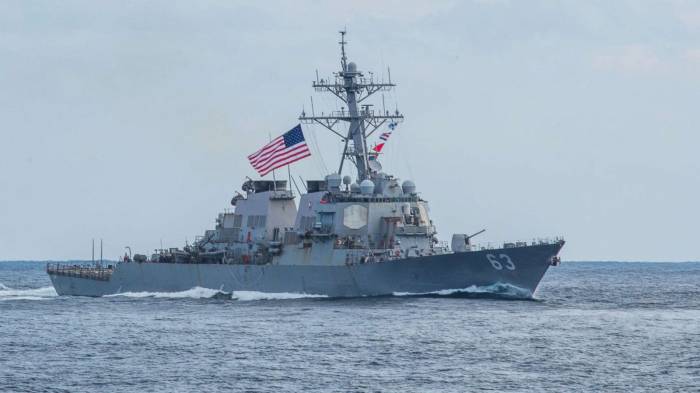Pentagon allocates $1.2 bln for naval operations in Red Sea


The Pentagon is set to invest approximately $1.2 billion to maintain ships deployed in operations in the Red Sea and to replenish missile stocks used to counter attacks from Iran and its proxies, according to newly released budget documents.
The spending, detailed in two Sept. 6 budget documents submitted to congressional defense committees and posted online, helps shine a light on the cost of maintaining a stepped-up presence in the region, as well as shooting down drones and missiles deployed by Iran and one of its proxies, the Houthi rebels in Yemen, News.Az reports, citing foreign media.
About $190 million will be spent on the restock of the sea-launched RTX Corp. Standard Missile-3 Block 1B and about $8.5 million will go for more heat-seeking air-to-air AIM-X Sidewinder missiles, according to the documents.
The largest chunk of projected Pentagon spending from a year’s worth of Middle East operations is $300 million for unplanned depot maintenance on the USS Bataan amphibious assault ship and ships with the USS Eisenhower Carrier Strike Group that conducted Red Sea operations, the Pentagon said in the documents.
More mundane but important to the US air and naval support is a bill for $16,000 to restock flares to support the self defense operations. Israel’s air defenses — with help from the US, the UK and others — repelled a barrage of some 300 drones and missiles fired by Iran in April.
The spending is linked to “costs incurred by the DoD within the US Central Command region in responding to the situation in Israel or to hostile actions in the region as a direct result of the situation in Israel,” one of the documents says.
Each advance model Standard Missile-3 Block IB costs between $9 million and $10 million. Two Navy destroyers this week fired about 12 Standard Missiles in defending Israel from another wave of Iranian assaults on Tuesday, according to a Navy official who declined to disclose the exact models and asked not to be identified discussing non-public information. That means this week’s US assistance likely cost about $120 million.

